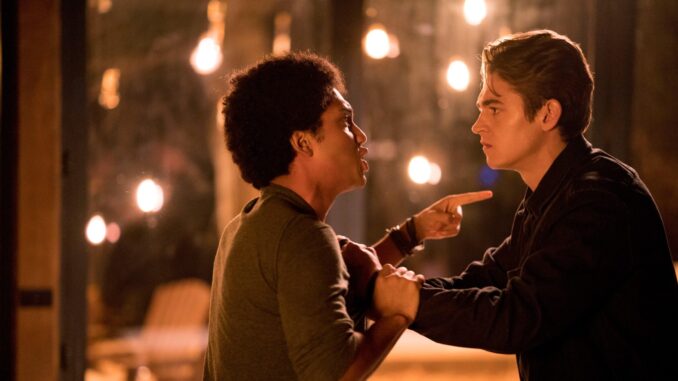
Redemption stories have always held a special place in romance dramas, but After Everything takes the idea to new emotional depths with Hardin Scott’s journey. For much of the After saga, Hardin has been defined by his volatility, his inability to trust, and the self-destructive choices that consistently hurt the people closest to him—especially Tessa. In this final installment, however, audiences witness a profound transformation that turns Hardin’s story into one of accountability, growth, and the possibility of change.
At the heart of this turning point is Hardin’s confrontation with his past. For years, he has hidden behind anger, addiction, and denial, often using his pain as an excuse for cruelty. But After Everything strips away those defenses and forces him to see the wreckage left in his wake. The most dramatic and unforgettable moment arrives when Hardin finally admits that his book, which fans have long followed as a symbol of his obsession with Tessa, is more than a love story. It is a confession of guilt—a candid acknowledgment of the mistakes he made, the people he hurt, and the truths he can no longer bury.
This admission marks a shift that fans had been waiting for since the beginning. For once, Hardin’s actions aren’t framed as another desperate attempt to win Tessa back. Instead, they reflect a deeper, more mature realization: redemption cannot come through someone else’s forgiveness alone. It has to be earned through honesty, responsibility, and the willingness to confront one’s own demons. By sharing his vulnerability, Hardin shows that he is no longer running from accountability but actively choosing to face it.
What makes this moment so powerful is how unexpected it feels, even after years of watching Hardin and Tessa’s tumultuous relationship unfold. Audiences have seen him at his worst—angry, reckless, and consumed by jealousy—but this version of Hardin is raw and unguarded. He is broken but not defeated, lost but searching for a way forward. The scene becomes a mirror for anyone who has ever made mistakes they regret: a reminder that growth often begins in the darkest, most painful admissions.
For Tessa, this turning point also changes the dynamic of their relationship. Instead of being the one constantly trying to fix Hardin, she is finally able to see him take responsibility for himself. Whether or not this redemption leads them back together romantically, it redefines their connection. Hardin is no longer the boy who demanded her unconditional love without offering stability in return—he is a man finally willing to earn it.
Ultimately, Hardin’s struggle with redemption is what makes After Everything one of the most powerful entries in the series. It takes the bad boy romance trope and flips it on its head, proving that true love stories aren’t about perfect characters but about imperfect people finding the strength to change. Hardin’s vulnerability, his confession, and his determination to grow transform him from a source of chaos into a symbol of resilience.
In the end, After Everything shows that redemption isn’t about erasing the past but learning to carry it with honesty and courage. For Hardin Scott, this realization becomes his greatest turning point—a moment fans will remember as the scene where he finally became the man he was meant to be.

